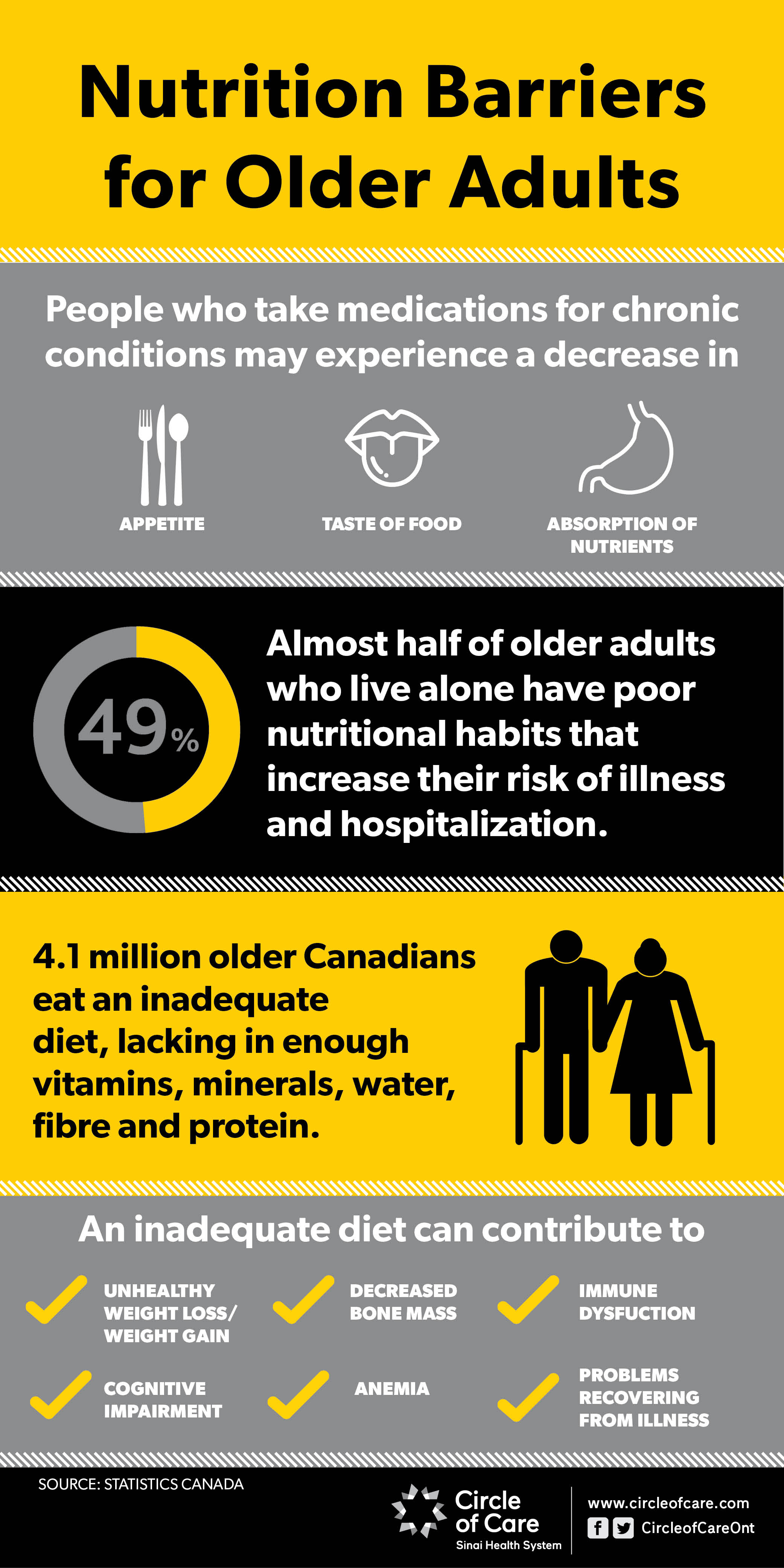
Good Nutrition for Healthy Ageing
Proper nutrition is a vital part of health at any age, but is especially important to consider when aging. Unfortunately, many older adults face a variety of barriers that prevent them from eating an optimal diet, including medications which can suppress appetite and mobility issues. In recognition of Nutrition Month in March, we’re focusing on how older adults can ensure they maintain a healthy diet for healthy aging.
Circle of Care offers numerous services that help older adults eat well. For those wishing to visit the grocery store, affordable transportation through iRIDE is available. Personal Support Workers can help clients with groceries and assist with light meal preparation in the home. And Kosher Meals on Wheels offers nutritious, precooked meals, delivered to clients’ homes.
Although barriers to accessing food pose significant challenges, there are other reasons why older adults may not get the nutrition they need, explains Trevor Heer, Circle of Care’s registered dietitian. “They may be tired of cooking, or may not want to cook, especially if they’re eating alone,” he says. “It’s also important to note that medications taken for chronic illnesses can also decrease appetite, and some older adults might have challenges with chewing or swallowing.”
In addition, Heer says it’s not uncommon for older adults to eat poorly because they don’t want to burden family members. “We’ve seen people with decreased mobility, who don’t drive and live far from a grocery store,” says Heer. “Often, they depend on visits from family members who bring fresh groceries, but if those visits are infrequent, they start to rely on packaged and canned foods more often than not.”
Addressing these concerns is vital to improving nutrition. These are Heer’s recommendations:
- For those who don’t want to cook: There are many food options that can be prepared and eaten cold. For example, a healthy breakfast can consist of toast with peanut butter, fruit, and a glass of milk.
- Loss of appetite: It’s important to ensure that every bite counts. Fill up on high-calorie, healthy choices. Avoid smoking, since it affects taste, and lowers appetite. Eat smaller amounts of food more often, and eat more when your appetite is best.
- Chewing and swallowing: Temporary problems with dentures or certain oral diseases can make it difficult to break down food. Thicker liquids, such as apple sauce, can be easier to swallow. Chop, mash or puree foods using a fork, blender or food processor. Add a gravy or sauce to foods to soften and moisten them.
- Loneliness: The prospect of eating alone can prevent some people from eating entirely. To lighten the mood during meal times, try listening to the radio. Social dining clubs, such as Circle of Care’s monthly Let’s Get Together program, offers clients the chance to share a warm meal in a pleasant social environment.
At Circle of Care, we are always looking for ways to better support our clients and their health needs. Good nutrition is fundamental to good health!
Sources: Dietitians of Canada, Eat Right Ontario



